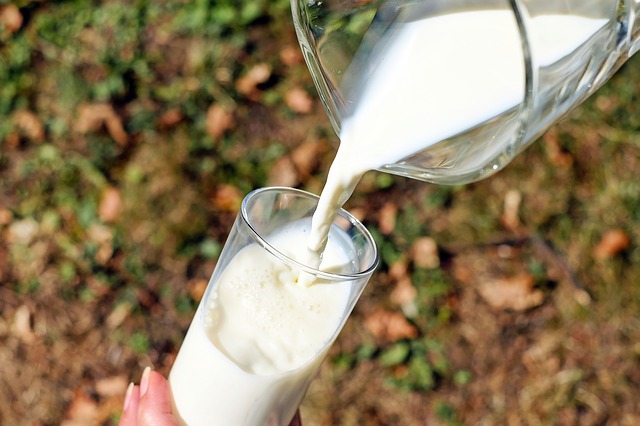Heart failure is a serious condition that demands a drastic change in lifestyle. However, many people with heart failure still continue living the way they previously did.
To live a healthy life, it is important to make changes and bring in healthier lifestyle habits.
The questions that arise are –
How do I cope with heart failure?
What are some of the lifestyle changes that must be made to live a healthier life going ahead?
Diet and exercise are two major factors that significantly improve the quality of life in patients with heart failure. Diet is crucial in managing heart failure.
If dietary recommendations for heart failure are not followed, the condition can worsen over time.
When used together, proper diet and medications are extremely effective in the treatment of heart failure. Taking medications and following the diet suggested by your health care provider can make it easier for patients to breathe normally and do nearly all their daily activities.
It is essential to follow a diet that is low in salt as a salt-rich diet may lead to fluid retention in the body, which can make it harder for the heart to pump out the extra blood volume through the blood vessels.
A balanced diet can prevent hospitalizations and untimely death among heart failure patients. Also, people with several nutritional deficiencies have a greater risk of being hospitalized compared to those with few or no deficiencies, making attention to diet an absolute must[3].
Diet In Heart Failure – Simple Tips
People with heart failure must watch what they eat. Foods that cause fluid retention in the body should be avoided. On the other hand, a diet rich in nutrients can promote overall health.
Foods that heart failure patients can consume include –
Milk

Any milk such as whole milk, skimmed milk, low-fat milk, yoghurt or milkshake is allowed in heart failure patients.
However, do remember that your total fluid intake should be limited. Ask your doctor on how much fluid you can consume in a day. Excessive fluid intake, which includes milk, can lead to water retention in the body.
Vegetables

It is essential to choose fresh or frozen vegetables, and eat them to your heart’s content.
Some veggies such as cucumber contain a lot of water, so bear this in mind.
Fruits

Plenty of fruits that are preferably fresh, or frozen and fruit juices can be consumed. Limit your fluid intake, as I have advised earlier.
I personally recommend my patients to have one fruit of their choice per day.
Some fruits will need to be avoided if you have kidney problems along with heart failure.
Low-Sodium Foods
Salt is notorious at holding onto water and causing fluid retention in patients with heart failure.
It is important to be aware of foods that are high in salt content. Common foods include pickles, papads, salted nuts and namkeen snacks. These must be avoided.
Plain rice, pasta and oats are some of the foods low on salt.
Heart failure patients should eat fresh meats, poultry, fish, dry and fresh legumes and eggs. Try and eat these with minimal salt added to the cooked dish.
Other Foods
I often advise patients with heart failure to avoid bakery foods such as masala buns, burgers, puffs etc as these have a ton of salt in them.
Cheese is preserved and should be avoided. However, you can have paneer. Unsalted biscuits are great, and if you have a baker in you, make some at home!
Foods To Avoid
Alcohol
Consumption of alcohol might weaken the heart muscle and worsen symptoms of heart failure.
High sodium diets
Excess of salt in the diet can lead to fluid retention. In addition, excess sodium can increase blood pressure worsening the existing heart failure.
Processed food
It is essential to avoid processed foods, including vegetables and meat, as they often contain high sodium.
Pickles and olives should also be avoided. Canned tuna contains salt as well.
Sweets And Desserts

Cakes and muffins brought from stores, prepared mixes and baked items made with baking powder or soda must be avoided due to their high salt content.
Most patients with heart failure have diabetes, and hence a good diet for diabetes should be followed simultaneously.
I have talked about foods and fruits that you can have if you have diabetes in other posts.
Seasonings Containing Salt
Other ways to season foods, such as herbs and spices, must be considered. People can also use lemon, vinegar, garlic and other such items instead of salt.
How Can Patients With Heart Failure Monitor Their Diet?
Heart failure patients must keep a tight track of their diet.
Certain foods and drinks may force the heart to work harder and worsen the symptoms of heart failure.
So, what are the ways you can manage and pay attention to their diet?
Checking food labels
Reading food labels is one of the essential things one can do while monitoring a cardiac diet. One must pay close attention to the amount of sodium (listed in mg) and the serving size found in labels.
Tracking salt and fluid intake
Heart failure patients must limit salt consumption to one teaspoon a day which contains about 2000 mg of sodium, and also limit fluid intake to 1.5 litres a day
Keeping an eye on weight
It is important to notice any sudden increase in weight as this could indicate excess fluid accumulation in the body.
Measures To Take At Home
Simple measures such as learning to cook according to diet recommendations can help manage heart failure symptoms.
Some of the things that can be kept in mind while cooking include –
- Seasoning foods with herbs instead of using salt could be an effective way to manage salt consumption.
- It is essential to give time for your taste buds to adjust and reduce salt consumption gradually.
- Make your own sauces containing less salt instead of using ready-to-use ones from the market.
- Prepare salad dressings with items like herbs, garlic and vinegar.
- Try low sodium recipe books.
- Avoid instant and packed foods
Things To Keep In Mind When Eating Out
In order to enhance the taste of the food they prepare, most restaurants add a lot of salt and fats to food. Unfortunately, most of this is unhealthy.
It is essential to keep a few things in mind while eating at restaurants.
Before visiting restaurants, you can browse to check the menu and nutrition information to ensure that you don’t consume too many calories.
If you think the food ordered needs a boost of flavor, ground black pepper can be added, or fresh lemon can be squeezed instead of adding more salt.
It is ok to ask the chef about the ingredients and preparation method of foods.
Watch out for foods that are brined (preserved in salt water), barbecued or smoked, as these may contain high salt. Instead, consider foods that are steamed, baked, grilled or roasted.
Ask if smaller portions of food are available, or ask your friend or family member to share food with you. You could also pack a portion of food for eating later.
Cutting calories also cuts down sodium levels.
You can still maintain a good diet in heart failure if you make the right choices.
Closing Remarks
People with heart failure can also live a healthy life, keeping diet plans and other lifestyle modifications in mind.
So, eat right for a healthy heart!
- Understanding Iron Deficiency Anemia: A Guide for Patients - May 31, 2025
- CT Coronary Calcium Score: A Guide for Patients - January 7, 2024
- Gastric Antral Vascular Ectasia (GAVE) – Causes, Diagnosis, and Treatment - August 5, 2023

